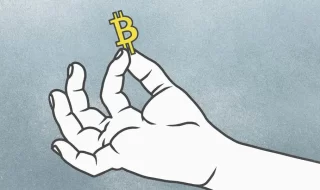
According to a recent study, inflation in the US is currently at a 40-year high. This means that the cost of just about everything – from gas to groceries – has risen considerably. As such, it’s hardly surprising that financial stress is also on the rise. For example :
- 77% of Americans are worried about their finances.
- One in Ten US families think they will soon struggle to afford groceries.
- The average American worries about their money six times a day.
However, while some aspects of our finances are beyond our control – there are certain steps you can take to better the situation and reduce some of the stress and anxiety you are dealing with. For example, you could:
- Consider investing.
- Grow your savings.
- Diversify your income.
- Put together a budget.
- Become a savvy-spender.
Consider investing.

While it may sound daunting, investing can be a great way to improve your financial situation by providing you with an additional (yet passive) income stream. However, if you are a first-time investor, it’s crucial that you do some research ahead of time to find an investment opportunity that is right for you. For example, if you’re considering getting involved with the world of BitCoin, you should check out this guide: How to Buy, Sell, and Trade Bitcoin: Helpful Tips.
The more informed you are, the more confident you will feel when investing. However, it’s also important to note that you should not invest more money than you can afford to lose. This way, if the markets do not work in your favor, you aren’t going to be in a worse position than you started off in – whereas if they go well, you can improve your situation considerably.
Grow your savings.

While we’re often reminded of the merits of having a savings account, a recent study found that 10% of adults in the US have no savings whatsoever. Furthermore, ”more than one in three have less now than they did before the pandemic.” This is unsurprising, but speaks to the importance of growing your savings as much as possible. After all, this provides you with emergency funds to rely on when things get tough.
The easiest way to grow your savings account is to ensure you’re actually using it. For example, you should aim to send a certain percentage of your wage directly into a savings account, as opposed to leaving it in your normal account. This way, you’re less likely to unintentionally (or intentionally) spend the money. You can also earn interest on any money that you have stored in your savings account.
Diversify your income.

Diversifying your income can also be a great way to improve your financial situation during troubling times, as it means you’re no longer relying on a single income stream. As such, you may want to consider turning one of your regular hobbies into a side hustle. After all, if you’re dedicating a large portion of your time and energy into an activity, you may as well earn some money for it where possible.
There are many different side-hustle opportunities sitting at your fingertips. For example, you could:
- Start a blog
- Become an online tutor.
- Sell photographs to stock-photo companies.
- Sell your art & craft projects online.
- Work as an editor/proofreader.
- Work as a virtual assistant.
- Delivery driver.
- Ironing/Laundry services.
- Participating in paid online surveys/focus groups.
Put together a budget.
Budgeting gives you the insight you need to better manage your finances – namely due to the fact that it helps you identify mistakes you might be making when it comes to your money. For example, while you may not think too much about buying a coffee each morning on your way to work, the monthly cost of this pick-me-up could startle you.
There are many different budgeting methodologies for you to try out – but one of the most effective is the 50:30:20 method. This encourages you to split your monthly expenses into three sections: needs, wants, and savings. You then:
- Allocate 50% of your money to needs. This includes things such as rent, utilities, gas, transport fees, groceries, medication, etc.
- Allocate 30% of your money to wants. This includes things such as subscription fees, dining out, days out, hobbies and activities.
- Allocate 20% of your money to savings and debts. This includes things such as college loan repayments.
Become a savvy-spender.

As mentioned above, becoming more aware of your spending habits is instrumental when it comes to saving more money. As such, it’s time to become a little savvier when it comes to your spending habits as a whole. For example, you should check to see if you can find coupons before doing your grocery shop, which could lower your monthly grocery bills quite considerably.
You should also find ways to cut back where possible. For example, if you forgot to cancel one of your subscriptions after the free trial ended, or have a membership you no longer use – now is your time to cancel it once and for all. Another way in which you can cut back on your monthly expenses is by using price-comparison websites to see whether or not you are getting the best deal for your monthly utility or insurance bills. If you find a better deal, be sure to reach out to your current provider before switching directly, as they may offer you a better price in order to retain your custom. Either way, be sure to stand your ground – you should not be paying more than necessary for any of your bills.
Final thoughts.
In short, there are various steps you can take to improve your financial situation before the end of the year. Many of these opportunities simply revolve around becoming a little more conscious of how you spend your money, so that you can focus on growing your bank account as opposed to shrinking it. This will provide you with much better stability during a turbulent time, reducing any stress and anxiety you may also be dealing with as a result.




